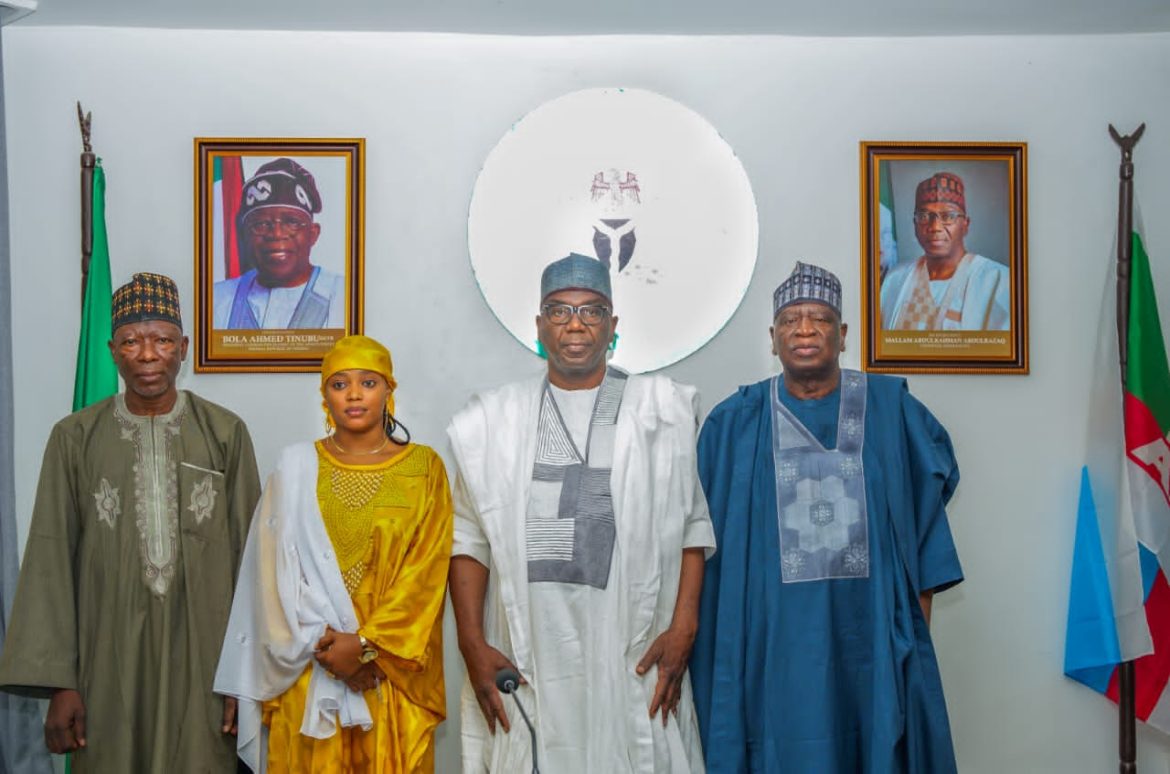By Omotayo Ayanda
In the recent gubernatorial appointments under Governor AbdulRahman AbdulRazaq’s administration, a notable trend emerged – the entrustment of significant responsibilities to youthful individuals, anticipating an invigorated governance and a new era of dynamism in Kwara State.
This development has seen the inclusion of many youths in key positions, highlighting Governor AbdulRahman AbdulRazaq’s commitment to youth empowerment and community development. While this move is commendable, it’s crucial to assess the impact and effectiveness of these young appointees. Analyze their performance so far, encourage them to step up their efforts, and outline the importance of their success for future opportunities.
The recent inauguration of Nafisat Musa Buge as the Commissioner for Youth Development emphasizes this paradigm shift. Governor AbdulRazaq justified his choice based on her commendable track record as a progressive political activist, her contributions to local party growth, and her unwavering support for the administration. Her induction into this administration was not merely ceremonial; it was a testament to the state’s commitment to involving youth in decision-making processes.
The Governor’s call for these young commissioners to be good ambassadors of their constituencies and communities sets a high standard. In an administration known for its focus on youth empowerment, gender inclusion, prudence, and accountability, the expectations for tangible results from these appointees are understandably high.
However, amidst the enthusiasm surrounding these appointments, a pertinent query arises: Have the youthful commissioners in Kwara State translated their potential into tangible developments for the State? The narrative, unfortunately, remains one of limited visible impact. The absence of groundbreaking policies or substantial projects has led to a sense of skepticism among the populace regarding the efficacy of these youthful appointments.
Admittedly, since their inclusion, the young commissioners have not yet delivered substantial policies or projects that have made a noticeable impact on the state. It is essential for these young leaders to realize the urgency and importance of demonstrating their ability to effect positive change in their respective ministries.
It’s crucial to understand the context in which these young commissioners operate. Most lack extensive experience in public administration compared to the structured environment of the civil service. As a consequence, navigating the bureaucratic intricacies has proven to be a formidable challenge. This inexperience has hindered their complete control over their respective ministries, with some still acclimatizing themselves to the complexities of governmental procedures.
While some may argue that the lack of experience in public administration inhibits their progress, it is imperative that the young commissioners take the initiative to learn and adapt quickly. Understanding the bureaucracy and intricacies of the public service is crucial to effectively implementing policies and projects. With time, it is hoped that they will acquire the necessary skills and knowledge to fully control their ministries.
Nonetheless, it’s premature to render a verdict on the effectiveness of these youthful appointees. Their tenure thus far has been characterized by a learning curve, a phase of adaptation to the demanding landscape of public service. The absence of immediate groundbreaking initiatives should not eclipse the potential and fervor these individuals bring to the table.
“At this stage, it is too early to pass judgment on these young commissioners. Instead, it is urged that they evolve, learn from their experiences, and make the necessary adjustments to deliver meaningful results. Their success will not only pave the way for future opportunities for other youths but will also solidify the Governor’s decision to include them in his administration,” Dr. Dayo Gbadebo, a political analyst, said.
The essence of this juncture lies in fostering an environment that nurtures growth and development. These youthful commissioners are in the throes of a learning process, gradually acquainting themselves with the nuances of governance. Their current status quo must not be misconstrued as a sign of incompetence but rather as a precursor to their evolution as seasoned leaders.
Governor AbdulRazaq’s decision to include the youth in key positions is not a spectacle but a deliberate call to cultivate a new breed of leaders equipped to propel Kwara State into an era of transformation. The onus falls not only on the current appointees but also on the aspirational horde of youth waiting for their chance. The present incumbents must carve a path of demonstrable progress, showcasing the potential for innovation and effectiveness inherent in the youth.
The collective aspiration is for these youthful leaders to transcend the current state of affairs and engender impactful change. It’s incumbent upon them to not merely occupy seats of authority but to harness their passion, dedication, and vision to craft policies and initiatives that resonate with the needs of the people they represent.
The road ahead is laden with challenges, but it’s equally adorned with opportunities for growth and transformation. The youth in governance must seize these opportunities, learning from their experiences, and progressively steering Kwara State towards prosperity.
However, it’s imperative to adopt a nuanced perspective regarding the role of youth in the administration. Patience is key as these commissioners navigate their learning curve. Their journey, albeit in its infancy, holds promise for a future where youthful exuberance translates into tangible advancements for Kwara State. The baton has been passed, and it’s now their time to weave a narrative of progress and development, vindicating Governor AbdulRazaq’s faith in their potential.
